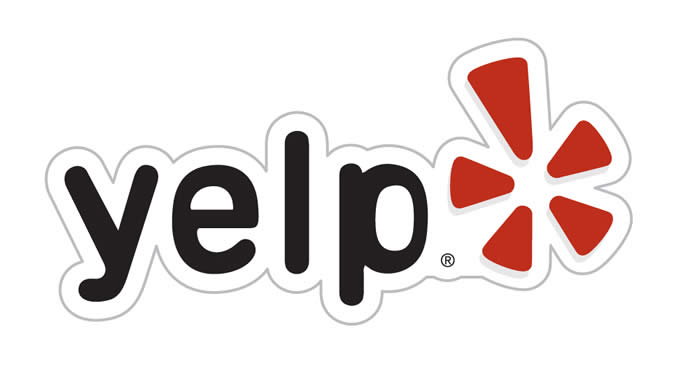We’re gonna have us a good old-fashioned showdown down in Austin next week! Guns will be drawn, intimidation will set in and only one man will survive to walk away with the glory. And then, of course, there’s that whole SXSW thing going on. But that’s just the backdrop! For many, all eyes will be on the forthcoming location wars and which service will declare dominance to become the google of location apps. Or maybe Google will become the google. But probably not.
With some much talk about all the different location-based services, I thought it may be interesting to provide a rundown of some of the biggest players. And, of course, I’d like your opinion: Who do you think will take the show?
Gowalla
![]() Who cares: Gowalla established a loyal user base hitting early on the location-awareness scene. What differentiates Gowalla from its closest competitor is that it’s based around exploration and discovering new places. FourSquare is about checking in, Gowalla is about finding what’s near you and proving it by picking up left objects. There’s no cheating going on here. [Looking at you, FourSquarers.]
Who cares: Gowalla established a loyal user base hitting early on the location-awareness scene. What differentiates Gowalla from its closest competitor is that it’s based around exploration and discovering new places. FourSquare is about checking in, Gowalla is about finding what’s near you and proving it by picking up left objects. There’s no cheating going on here. [Looking at you, FourSquarers.]
What’s new: A lot. It sounds like Gowalla will be bringing its A-game to SXSW. They’ve rolled out a new Web site that hails a prettier UI and new features like the streaming Live on Gowalla, updated profile pages and an area for Featured spots. They’ll also have a new iPhone app out in time for the big show that boasts new features like the ability to add pictures and comments to check ins. Robert Scoble recently sat down with Gowalla CEO Josh Williams to talk about what’s coming. It’s clear that Gowalla has heard FourSquare’s cry and they’re not backing down. Gowalla will be throwing a big party during SXSW…which coincidentally falls on the exact same night as FourSquare. Place nice, Ladies.
FourSquare
 Who cares: FourSquare’s done a fairly good job establishing itself as The One To Watch in the world of location-based apps. Users can hop around their town checking into their Favorite locations to earn badges, honors and bragging rights for their trouble. Many users are partial to FourSquare because of the neighborhood tips they offer and because its user base is on the quick rise.
Who cares: FourSquare’s done a fairly good job establishing itself as The One To Watch in the world of location-based apps. Users can hop around their town checking into their Favorite locations to earn badges, honors and bragging rights for their trouble. Many users are partial to FourSquare because of the neighborhood tips they offer and because its user base is on the quick rise.
What’s new: Again, a lot. FourSquare has secured partnerships with outlets like Bravo, HBO and The New York Times to offer special badges for users who “check in” at specific locations. They’ve increased real business appeal with the adoption of new analytics tools to help SMB owners track behavior. They have the aforementioned SXSW party to look forward to, new categories, (reportedly) a brand new iPhone app, new badges for SXSW goers to collect and they’ll be throwing surprise events on the street. If marketing plays any role in app dominance, Foursquare is certainly on it.
Booyah
![]() Who cares: MyTown from Booyah takes the ‘game’ aspect of Gowalla and FourSquare and ups it about ten notches. It borders more on an augmented reality game than a location-based app (IMO). In MyTown, users earn points by checking in at real-world locations and can purchase the many shops located in MyTown. Once they own the buildings, they can charge rent and use the money earned to buy more shops or all sorts of other virtual goods. My gamer background is pretty limited (sorry), but I’d say it’s a nice mix of Second Life meets Monopoly.
Who cares: MyTown from Booyah takes the ‘game’ aspect of Gowalla and FourSquare and ups it about ten notches. It borders more on an augmented reality game than a location-based app (IMO). In MyTown, users earn points by checking in at real-world locations and can purchase the many shops located in MyTown. Once they own the buildings, they can charge rent and use the money earned to buy more shops or all sorts of other virtual goods. My gamer background is pretty limited (sorry), but I’d say it’s a nice mix of Second Life meets Monopoly.
What’s new: From the outside it looks a little silly, but the truth is Booyah may just be ahead of its time. With virtual goods on track to reach $1.6 billion in revenue this year, Booyah is tapping into what could be a smart model. They’ve already partnered with companies like H&M and Zone Nutrition bars and you have to wonder if they won’t partner with Loopt to further up the advertising opportunities. During one of her SMX presentations, Cindy Krum spoke a bit about augmented reality apps and opened my eyes to a world that I never knew existed. There are loyal communities on these sites and those that love the gaming aspect of location have found a hit with Booyah. I don’t know that SXSW will be what it needs to break it big, but it’s definitely one to watch down the road.
 Who cares: The 400 million users who currently have a Facebook account.
Who cares: The 400 million users who currently have a Facebook account.
What’s new: Next month Facebook will launch its own location-based features that will allow users to (of course) check in to locations and share that information with friends. According to Inside Facebook, the site won’t be attempting to “kill FourSquare”, however, by adding a check in feature to their 400 million user empire, they’re certainly taking away incentive for users to set up shop elsewhere. Facebook is also making itself more attractive to local business and advertisers, with its recent partnership with eventbrite. If users can tell their friends where they are and businesses can use that information to track behavior and then monetize events and offers directly on Facebook… that’s powerful.
 Who cares: Everyone who has contributed to the 10 billion tweets that have been sent out to date.
Who cares: Everyone who has contributed to the 10 billion tweets that have been sent out to date.
What’s new: As of yesterday afternoon, Twitter has officially switched on its geolocation feature to allow users to tag their tweets with their exact location. Twitter’s geolocation feature works by showing a map overlay on tweets to show place names and your location. Not exactly a revolutionary adoption, but one that makes sense and does take the steam out of other location-based applications that don’t have Twitter’s large, active user base. Twitter also released Twitter Local Trends back in January to help users find relevant localized content and other cool stuff. Twitter’s conquered the celebrities and the rest of the world, now they’re coming after your town.
Yelp
 Who cares: Yelp drew 29 million visitors in January and is a dominate player in the market when it comes to anything labeled “review”. The community is fiercely loyal and the mobile apps have done a great job of encouraging users to take Yelp out into the streets.
Who cares: Yelp drew 29 million visitors in January and is a dominate player in the market when it comes to anything labeled “review”. The community is fiercely loyal and the mobile apps have done a great job of encouraging users to take Yelp out into the streets.
What’s new: Their $500 million Google snub and the ability for users to check in at locations. I haven’t seen too much recent news from Yelp, but with 29 million users they’re certainly in the position to bump out someone like FourSquare if they start getting smart.
Google Buzz
 Who cares: I’m honestly not sure.
Who cares: I’m honestly not sure.
What’s new: Everything. Month-old Buzz is still trying to prove its value and convince us that it’s not creepy. There’s a strong location-aware element that is tied into Google Maps to help determine your location and graph where you are, however, because it’s built into GChat, it’s a bit cumbersome. But with Google’s massive audience, it can be a bit cumbersome and still topple the other players. Not that I think it will. TechCrunch had a nice post on how Google Buzz could dominate local. I can’t feign interest nearly as well as they can. Sorry, Buzz.
Geolocation is what’s hot in 2010. Users like the ability to find what’s near them and participate in their real life communities in new ways. And for advertisers, localization means the ability to target and track users like never before. It’s no surprise we’re seeing a gold rush right now with everyone fighting to claim dominance. Who’s your favorite in these location wars?
Who I do think will win? FourSquare.
Who would I like to win? Gowalla.


